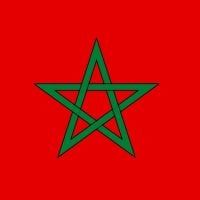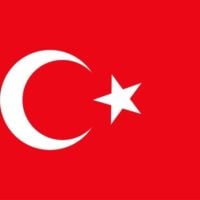Deadline: 04-Aug-2023
The U.S. Embassy in Suva, Fiji announces an open competition for organizations interested in submitting applications for a regional program in eligible Pacific Island countries at $1.5 million or less to promote greater leadership roles and economic opportunities for Pacific women and girls as part of the region’s ongoing clean energy transition.
Pacific Island Countries – among the most vulnerable in the world to the impacts of climate change – have set ambitious goals and targets for renewable energy deployment and decarbonization of their economies. Transition to renewable energy however presents specific structural and cultural challenges to ensuring that women girls – including from marginalized and underserved populations – have sufficient opportunities, resources, and freedom to benefit from and participate fully in new economic opportunities provided by the region’s emerging renewable energy sector. Increasing female participation in the Pacific energy sector will also bring valuable additional viewpoints to help foster greater innovation in the sector.
This new program will help secure women’s economic future by strengthening institutions and gender-responsive policies in the Pacific’s male-dominated energy sector, enhancing employment opportunities for women in the clean energy workforce, promoting women’s access to and representation in decision-making around the clean energy transition in the Pacific Islands, and promoting relevant science, technology, engineering, and mathematics (STEM) education opportunities for women and girls.
Goals
- This new program seeks to secure the economic futures of Pacific women and girls by supporting their participation in the Pacific region’s ongoing clean energy transition. More specifically, the program seeks promote women’s climate and clean energy leadership and economic security by increasing education, career, and income generation opportunities for women and girls across the region. This includes securing women’s economic future by strengthening institutions and gender-responsive policies in the Pacific’s male-dominated energy sector, enhancing employment opportunities for women in the clean energy workforce, supporting income generation opportunities for women-led businesses, promoting women’s access to and representation in decision-making around the clean energy transition in the Pacific Islands, and promoting relevant science, technology, engineering, and mathematics (STEM) education opportunities for women and girls.
- Activities under this project may include conducting sub-regional market assessments to identify employment and income-generating opportunities for women in clean energy and supporting or related fields; supporting pilot projects to increase opportunities for womenowned businesses in the sale, distribution, and maintenance of renewable energy systems; and providing scholarships for women and girls to pursue university studies in science, technology, engineering, and mathematics (STEM) fields of relevance to existing, new, and emerging clean energy sector jobs.
Funding Information
- Total Funding: $1.5 million (FY 2022 Gender Equity and Equality (GEEA) Funds (ESF)).
- Period of Performance: Three years.
Main Activities
- To achieve the goals and expected results, activities to be conducted in this project may include, but are not limited to:
- Establishing a gender and mainstreaming capacity development plan and governance structure to strengthen national energy policies;
- Conducting market assessments to identify employment and income-generating opportunities for women;
- Conduct training needs assessment of for the clean energy sector;
- Developing regional and or national plans and policies to promote women’s participation and leadership in the energy sector;
- Raising awareness on clean energy polices and opportunities for women in the sector;
- Supporting pilot projects to increase opportunities for women-owned businesses in the sale, distribution, and maintenance of renewable energy systems;
- Providing scholarships for women and girls to study relevant science, technology, engineering, and mathematics (STEM) fields that traditionally have been male dominated.
- Undertaking a regional or national assessments of energy and climate education and articulate career pathways for women in the clean energy sector.
Performance Indicators
- All projects should aim to have an impact amongst the following:
- Women with increased economic opportunities as a result of the program
- Increased uptake of gender responsive policies in the Pacific energy sector.
- Increase in women employed in the sector.
- Increase in women studying energy and related STEM topics.
- Increased revenue of existing women-led enterprises and/or increase in the number of new women-led enterprises created as a result of program support.
- Number of regional and national energy-related policies that are gender responsive.
- Number of women leaders and women organizations reporting active participation in energy sector-related decision making at all levels.
- Number of program participants actively employed in the clean energy sector.
Expected Outcomes
- The ultimate objective of this project is to increase women’s engagement as entrepreneurs and professionals in the clean energy employment market. The project should seek to achieve:
- Promoting women’s climate and clean energy leadership;
- Facilitating economic security by increasing career and income generating opportunities for women and girls;
- Supporting women-owned businesses in the sale, distribution, and maintenance of renewable energy systems;
- Supporting scholarships for women and girls to pursue tertiary studies in relevant science, technology, engineering, and mathematics (STEM) fields;
- Strengthening gender-responsive regional and national energy policies;
- Enhancing employment opportunities for women in the clean energy workforce;
- Promoting women’s access to, and representation in energy-related decision-making at the society, community, and household level;
- Promoting women’s access to, and representation in energy-related decision-making at the society, community, and household level.
Eligible Countries
- Projects may propose activities targeted through this solicitation in the following countries: the Federated States of Micronesia (FSM); Fiji; Kiribati; Palau; Papua New Guinea; Republic of the Marshall Islands (RMI); Samoa; the Solomon Islands; Tonga; Tuvalu; and/or Vanuatu.
Eligibility Criteria
- U.S. Embassy Suva welcomes applications from applications from U.S.-based non-profit/nongovernmental organizations subject to section 501(c) (3) of the U.S. tax code; foreign-based non-profit organizations/nongovernment organizations (NGO); international organizations, and Pacific regional organizations.
- Applications submitted by for-profit entities may be subject to additional review following the Merit Review Panel selection process. Additionally, the Department of State prohibits profit to for-profit or commercial organizations under its assistance awards. Profit is defined as any amount in excess of allowable direct and indirect costs. The allowability of costs incurred by commercial organizations is determined in accordance with the provisions of the Federal Acquisition Regulation (FAR) at 48 CFR 30, Cost Accounting Standards Administration, and 48 CFR 31 Contract Cost Principles and Procedures.
For more information, visit U.S. Embassy in Fiji.









































